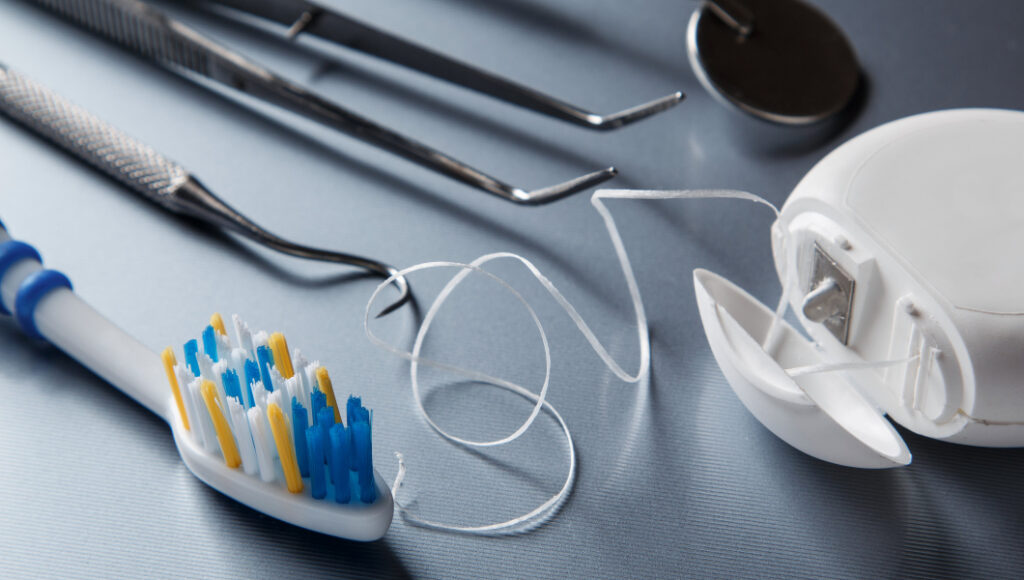
After undergoing significant dental treatments such as root canals, implants, or dental crowns, proper aftercare is essential to maintaining your oral health and ensuring the longevity of the treatment. A combination of diligent hygiene practices, dietary considerations, and regular dental visits can help preserve the effects of major dental work and prevent complications.
This article will outline some best practices for maintaining dental health post-treatment, offering insights into effective ways to preserve your oral health in the long term.
The Importance of Post-Treatment Oral Hygiene
Following a major dental procedure, keeping your mouth clean is crucial. Regular brushing and flossing are necessary, but your dentist may recommend specific techniques to avoid aggravating the treated area.
For instance, using a soft-bristled toothbrush is often encouraged as it helps clean sensitive or treated areas gently without causing irritation. Dental professionals usually recommend brushing at least twice daily and flossing once a day to remove any plaque or food particles that might lead to infection.
In some cases, your dentist may also suggest using a mouth rinse designed for post-treatment care. These rinses can reduce inflammation and kill bacteria that may cause complications. Make sure to select an alcohol-free mouthwash, as alcohol can be harsh on newly treated areas and impede the healing process.
For patients who have undergone treatments like root canals, it is particularly important to monitor the treated tooth closely. Some individuals may experience issues such as a tooth cracked after a root canal, which may require immediate attention from a dental professional to prevent further complications.
Adapting Your Diet for Recovery
Post-treatment, your diet plays a significant role in both the healing process and long-term dental health. Certain foods can irritate sensitive areas or damage recent dental work, while others support recovery and dental strength. Right after a major treatment, sticking to soft foods like soups, mashed vegetables, scrambled eggs, or yogurt is recommended. These foods are gentle on the treated area and easy to chew, allowing you to avoid undue stress on your teeth.
It’s also essential to avoid sticky or hard foods that might damage your dental work. For example, nuts, hard candies, and crunchy vegetables should be consumed with caution, especially after treatments like fillings or crowns that may still be settling. Sugary foods should be minimized to prevent bacteria growth that could lead to cavities or infections in the treated area.
Over time, your diet can gradually reintroduce firmer foods as the healing process continues. However, maintaining a balanced diet rich in nutrients like calcium, phosphorous, and Vitamin D is vital to support your overall oral health. Dairy products, leafy greens, nuts, and fish are excellent sources of these nutrients and can help strengthen teeth and bones.
Regular Dental Visits for Monitoring and Prevention
Consistent follow-up appointments with your dentist are one of the most effective ways to maintain dental health after a major treatment. These visits allow your dental professional to monitor the treated area, identify any potential problems early on, and provide guidance for ongoing care. During these appointments, your dentist can check for signs of infection, alignment issues, or other complications that may arise from the treatment.
Regular cleanings are also vital to maintaining oral health, as they allow for a deep cleaning that daily brushing and flossing cannot achieve. Your dentist may also recommend specific preventative treatments, such as fluoride applications, to strengthen your teeth and protect against decay.
Additionally, if you have undergone treatments like implants, crowns, or veneers, regular dental visits help assess your condition and make sure they are functioning properly.
Managing Oral Sensitivity and Pain Post-Treatment
Experiencing sensitivity and discomfort is common after major dental treatments. You might notice heightened sensitivity to hot, cold, sweet, or acidic foods, particularly in the weeks following the procedure. One of the best ways to manage this sensitivity is by using toothpaste specifically designed for sensitive teeth. These kinds of toothpaste contain ingredients that help block the pathways that lead to nerve endings in your teeth, reducing sensitivity over time.
Over-the-counter pain relief options, like ibuprofen or acetaminophen, can help alleviate discomfort, but it’s essential to consult your dentist before using any medication. Additionally, avoid consuming extremely hot or cold beverages, as they can exacerbate sensitivity. Drinking lukewarm water and consuming room-temperature foods can help minimize discomfort and support a smoother recovery.
Protecting Your Dental Work from Damage
Protecting your teeth after a major treatment is a key part of maintaining dental health. If you have undergone treatments like implants, crowns, or bridges, they need to be treated with care to maximize their lifespan. One of the most important preventive measures is wearing a mouthguard if you grind your teeth at night (a condition known as bruxism). Grinding can cause extensive damage to dental work and lead to pain, discomfort, and additional dental issues.
Similarly, if you engage in contact sports or activities where there’s a risk of impact to the face, wearing a sports mouthguard can safeguard your teeth and any dental work you’ve had done. These mouthguards are custom-made by dentists to provide optimal protection, fitting securely over your teeth to minimize the risk of injury.
Staying Hydrated and Avoiding Harmful Habits
Staying hydrated is a simple yet effective way to support dental health, especially after major treatments. Water helps wash away food particles and bacteria from the mouth, reducing the risk of plaque buildup and cavities. Drinking water regularly also prevents dry mouth, which can be a side effect of some dental treatments or medications.
Avoiding harmful habits such as smoking or excessive alcohol consumption is essential. Smoking can slow down the healing process after major treatments and increase the risk of complications like gum disease or implant failure. Alcohol can irritate sensitive areas and reduce saliva production, leading to a drier mouth and higher susceptibility to cavities.
Maintaining a Long-Term Oral Health Plan
Sustaining the results of a major dental treatment requires dedication to a long-term oral health plan. This plan should include regular brushing and flossing, bi-annual dental checkups, and an awareness of any changes in your oral health. Paying attention to signs of discomfort, discoloration, or movement in your dental work can alert you to potential issues that may need prompt attention from your dentist.
It’s also essential to develop good oral habits early and encourage them within your family. Teaching children the importance of oral hygiene, the benefits of regular dental visits, and the avoidance of sugary snacks can help establish lifelong habits that contribute to long-term dental health.
For adults, making informed choices about dietary habits, lifestyle changes, and regular dental care will significantly contribute to maintaining healthy teeth and gums after major treatments.
All in all, proper aftercare is essential for preserving the results of any major dental treatment. By practicing good oral hygiene, maintaining a balanced diet, regularly visiting your dentist, and protecting your dental work from damage, you can keep your teeth healthy and strong for years to come.






